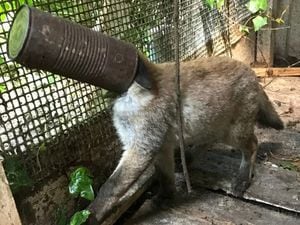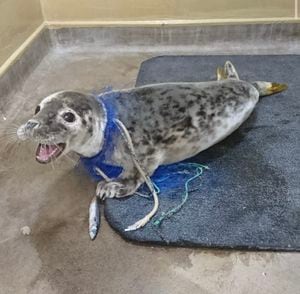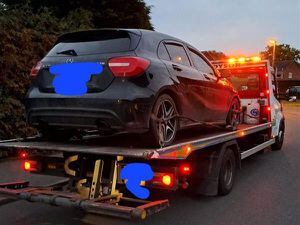Litter cause of 264 injuries to animals in Shropshire
More than 260 animals have suffered injuries caused by litter discarded in Shropshire over the last five years, the RSPCA has reported.

Nationwide, between 2015 and 2019 there were more than 21,600 reports of pets and wildlife being trapped. Of those, 264 were from Shropshire.
Now the animal welfare charity is urging members of the public who are heading out and about as lockdown eases to ensure they are taking their litter home or disposing of it correctly.
Its England and Wales emergency hotline got 6,466 calls about animals affected by rubbish including empty tin cans, plastic bottles and elastic bands.
See also:
In addition here were15,183 calls relating to injuries or incidents due to in angling debris.
While a further 12,904 calls of animals and birds trapped in netting, including nets discarded as rubbish, sports netting or material hung on bushes or trees to deter birds.
The charity said its officers were being regularly called out to help cats, birds and wildlife who have got themselves tangled in netting, injured in fishing litter or stuck in rubbish.
Last month they helped a fox found with a tin can stuck on its head in London and a seal wounded by fishing netting wrapped around its neck in Norfolk.

Head of the RSPCA’s wildlife team Adam Grogan said: “Our staff are dealing with thousands of incidents every year where animals and birds have been impacted by litter - and they’re the ones that we know of. I’m sure for every animal we’re able to help there are many that go unseen, unreported and may even lose their lives.
“Litter is one of the biggest hazards our wildlife faces today - and it’s something that’s very easy to resolve. That’s why we’re calling on the public to take extra care to clear up after they’ve been out for a walk or enjoyed a picnic in the woods.
“Now that the Government has eased some of the lockdown restrictions, we’re sure lots of families will be out and about in nature. But it’s our job to protect nature and that includes properly and responsibly disposing of our litter so that animals can’t be hurt.”





